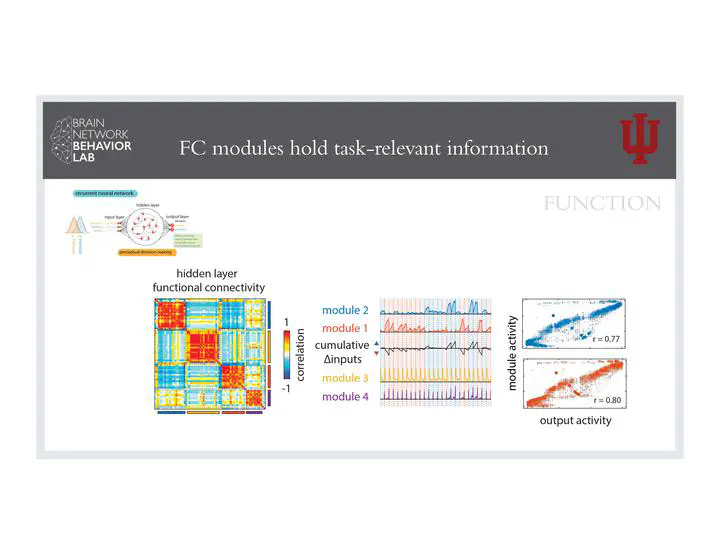Functional connectivity modules in recurrent neural networks:function, origin and dynamics
 Example slide
Example slideAbstract
Understanding the ubiquitous phenomenon of neural synchronization across species and organizational levels is crucial for decoding brain function. Despite its prevalence, the specific functional role, origin, and dynamical implication of modular structures in correlation-based networks remains ambiguous. Using recurrent neural networks trained on systems neuroscience tasks, this study investigates these important characteristics of modularity in correlation networks. We demonstrate that modules are functionally coherent units that contribute to specialized information processing. We show that modules form spontaneously from asymmetries in the sign and weight of projections from the input layer to the recurrent layer. Moreover, we show that modules define connections with similar roles in governing system behavior and dynamics. Collectively, our findings clarify the function, formation, and operational significance of functional connectivity modules, offering insights into cortical function and laying the groundwork for further studies on brain function, development, and dynamics.